Moving About Newport Difficult for Elderly, Mobility Impaired
City's first transportation master plan in 20 years looks to increase options, improve infrastructure
November 7, 2022
NEWPORT, R.I. — Barbara Monk rattled down Bellevue Avenue on a sunny fall day after her weekly trip to the grocery store.
The 65-year-old lives at Donovan Manor around the corner on Chapel Street, and despite her bad hip and diabetes, she often walks to the Stop & Shop to pick up the things from her list that she can’t get at the Martin Luther King Jr. Community Center’s food pantry.
Usually, she takes the back way home with her shopping carriage to avoid Bellevue, with its fancy shops, posh people, and potential embarrassment.
But walking back that day, as she lifted a little cart carrying ginger ale and crackers over a curb, she said, “I’m feeling brave.”
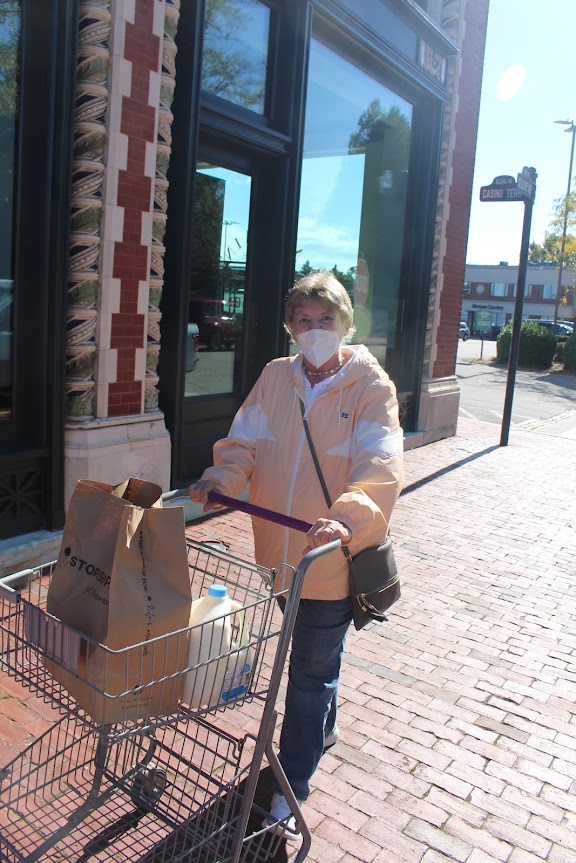
Monk is one of many older adults trying to “age in place” in Newport, a city known as an expensive playground for retirees with grand second homes. But it is also a place where many seniors and residents of all ages struggle to survive on incomes close to or below the poverty line.
More than 14 percent of Newport’s year-round residents live in poverty, which is higher than the state average of 11.4%, according to U.S. Census data. Housing costs are a burden to many, with about a third of homeowners and about half of renters spending more than 30% of their incomes on housing in the city, according to HousingWorks RI’s 2021 Housing Fact Book.
Despite being home to famous mansions, in Newport, a high percentage of the city’s year-round dwellings are considered long-term affordable housing — about 16%, according to the Fact Book.
Donovan Manor, down the street from the International Tennis Hall of Fame, the Audrain Auto Museum, and the fancy shops of Bellevue Avenue, is one of those affordable housing complexes for low-income older adults and adults with disabilities.
Of those living in long-term affordable housing in Newport, a quarter are elderly.
It’s difficult to manage to stay in the city without a certain level of resources, and getting around can be ever more complicated.
Driving is the most common way to get around Newport. Even though most of the trips within the city are less than 4 miles, most of them don’t involve walking or public transit, according to 2017 National Household Travel Survey Rhode Island Sample Trip Length Data.
Many older adults don’t have access to cars, either because disabilities prevent them from driving, or, like Monk, because fixed incomes make cars unaffordable.
The bus is an option for some, and the Rhode Island Public Transit Authority (RIPTA) does offer reduced or free fares to seniors, depending on their income. But taking public transit can still be a challenge.
Dorothy Campbell, a resident of Middletown who works at the Stop & Shop in northern Newport, is another senior who reluctantly gets around on the bus.
With red highlights in her hair and a mask covering half her face, she waited outside the Stop & Shop on a fall evening for the 63 bus, which was running late — as it has been a lot lately with the Rhode Island Transportation Authority driver shortage.
Campbell’s bus schedule recently changed, and now it gets her to work 15 minutes after her shift starts. It’s a small change, but it means she has to work an extra 15 minutes later, and then has to scramble to hop on the bus in the afternoon. And as it gets darker, waiting 20 minutes or a half-hour for the bus can mean the difference between day and night, literally.
“I wish I could get a car,” she said, but “I don’t have money to buy a car.”
Holding the dollar for her reduced fare and looking at her watch, she said RIPTA drivers often refute that she qualifies for the senior discount. (She wouldn’t say how old she is, only that she qualifies for Medicare.) She looks young, and drivers often ask her to show them proof of her age.
“I want to buy a car someday, if I can,” she said, and laughed. “I don’t know when, if I’m still here.”
Sherman Pines, another Donovan Manor resident who is an elderly advocate and serves on the state’s Integrated Care Initiative (ICI) Implementation Council, said although public transportation in Newport is probably better than most urban areas in the state, he still hears from older adults like Monk and Campbell about issues that might not impact the larger bus-riding population.
Bus shelters, for example, can make the difference between taking the bus or staying home when there is rain or snow, Pines said.
The bus stop near Donovan Manor does not have a bus shelter.
Pines said he would like to see more shelters installed so that, rain or shine, the elderly and those with disabilities feel more comfortable waiting for the bus.
RIPTA will soon announce an initiative to improve bus stops across the state, according to RIPTA director of public affairs Barbara Polichetti.
“For this project we will inventory each stop in the system, identify those stops most in need of improved amenities, and install those features at the prioritized stops over a series of years,” she wrote in an email to ecoRI News, noting that bus shelters and seating are costly to install and maintain so they will likely be placed at popular stops, like those near senior centers.
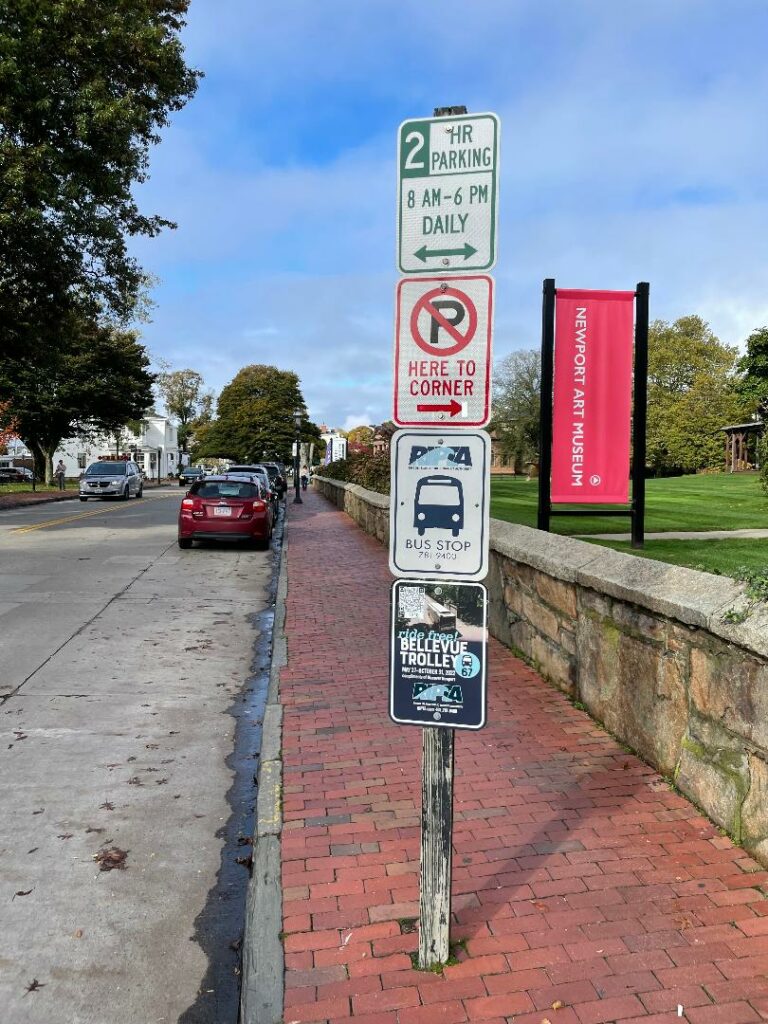
Bus stops are also a particular challenge in Newport and for seniors because the city’s narrow streets sometimes prevent large buses from getting to certain areas, such as Chapel Street, where Donovan Manor is located.
The smaller flex buses, which allow passengers to choose their own pick-up and drop-off point by calling ahead, can get closer to Donovan Manor, but they don’t “kneel” down for passengers with walkers or canes or those who can’t climb large steps. Pines has helped arrange flex buses for other residents, only for them to be unable to get on the bus when it comes.
Even buses that are more accessible can be an issue.
Eric Haytt and his father, who is 67, live in Newport Heights and had recently been taking the bus while his father’s car had been in the shop.
Haytt often takes the bus from his home, and he likes it and thinks it’s generally easy to get around.
But when he’s been on the bus with his father, Haytt has noticed how much more difficult it is for someone who has a mobility issue. Some drivers don’t notice that he needs the bus to kneel down for his father. That means his father has to lift his walker up, “and he can barely walk as it is,” Haytt said.
Bus drivers have also been annoyed with his father for having a walker in general, according to Haytt. On the way back from the grocery store, bus drivers have scolded his father for having more than three bags, and included his walker in that tally, he said.
(There is no “three-bag rule” and a walker would not qualify as a parcel, according to Polichetti.)
Anyone older than 60 also has the option of using Rhode Island’s non-emergency medical transportation services, which make specific accommodations for people using wheelchairs, walkers, and canes, or who have other mobility issues. But those services, managed by Medical Transportation Management (MTM), can only take individuals to and from medical appointments.
Getting to and from medical appointments is often a top priority for seniors who don’t have their own transportation, according to Pines, who often gets other Newporters signed up for the service and schedules their appointments.
The MTM rides will take folks to appointments outside the city and even to Massachusetts, something that is increasingly needed as medical services move out of Newport and toward Providence, Pines said.
Monk, who also serves on the board of the ICI Implementation Council with Pines, said MTM often arrives late or not all, so seniors are sometimes wary of using the service.
Carmela Greer, executive director of the Edward King House, Newport’s senior center, said when residents get don’t get picked up by MTM on time and must wait outside in cold weather or by themselves, it makes them feel scared and less likely to want to use the service in the future.
“In the last 12 months, more than 99% of trips have been completed without a complaint being filed,” according to MTM spokesperson Cara Cromwell.
“The use of rideshare services by MTM is capped at 5% of all trips and usage is usually well below that cap,” Cromwell wrote in an email to ecoRI News, adding that “rideshare is used primarily for short notice trips or to make up for a late or cancelled trip.”
With all these challenges, sometimes walking is easier, when it’s possible. But even the half-mile walk to the grocery from Donovan Manor can be daunting to someone who is older or has a disability.
Monk is luckier than most in a lot of ways — she’s pretty healthy and lives within a reasonable distance of a pharmacy, a convenience store, and a supermarket — but she still has to stop sometimes when she’s walking to catch her breath because of her diabetes.
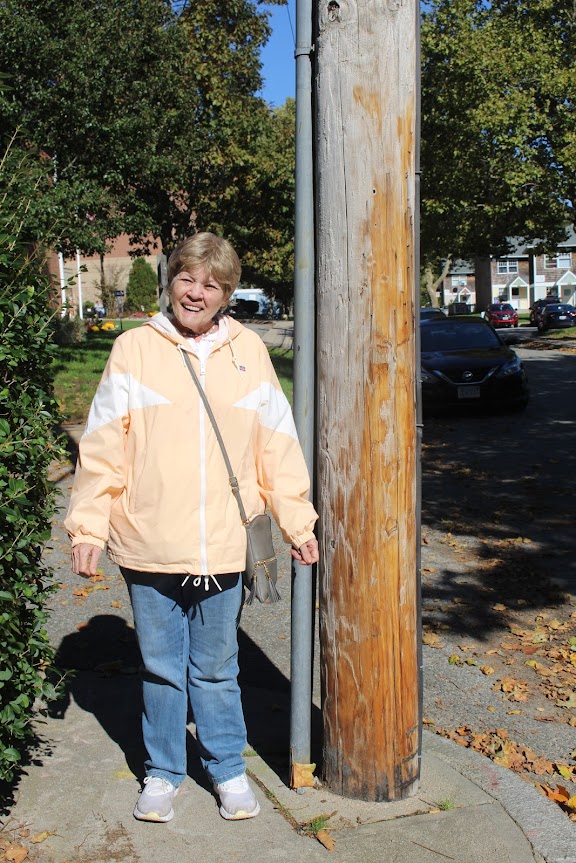
At one place where “telephone poles grow through the sidewalks,” she stopped along the way to Stop & Shop to point out how her friends with walkers who often make the trip with her have a difficult time getting through.
“Did anybody think maybe that was a problem?” Monk asked, coming across a spot where a tree root had completely taken over a brick sidewalk.
Her friends who use walking aids are often scared to walk alone, she said, for fear they’ll trip or fall, and no one will be there to help them.
A few people living in Donovan Manor have fallen during bad weather on their walk to and from the Bellevue Avenue bus stop, even though it’s close by, and come back home with gashes on their face, Monk said.
Monk believes Newport’s new transportation master plan (TMP), the first the city has undertaken in 20 years, will focus on fixing some of these problems.
The city has done a few years of outreach now to gauge what the community thinks local transportation lacks, including a meeting at Donovan Manor to discuss improvement areas and get feedback, which Monk attended.
The TMP Public Engagement Final Report from 2020 and the Existing Conditions Report from earlier this year noted some traffic and transportation details that limited seniors, including issues at the crossing light on Bellevue Avenue and Memorial Drive, the need for reliable and affordable transportation to and from medical appointments and other places, and the potential for a senior bus.
The latter report noted there was “limited vision” in the past that inspired slow change and sometimes didn’t consider the needs of different groups, including seniors.
Greer said she suggested a bus for older adults or some form of regionalization that focuses on all those details.
As Newport’s transportation stands now, “on paper, all these things look great,” Greer said, but many of the seniors she works with are only learning how to use public transport as they enter the later years of their lives.
She especially worries about those with mobility issues. In Newport, which has one of the highest proportions of residents 85 years old or older in the state, that’s an issue for many of the people Greer serves.
Actions like the hop-on-hop-off free bus Newport tried this summer are a step in the right direction, but there needs to be more, Greer said.
She worries that especially during the pandemic, seniors have become more isolated than ever, and she hopes people don’t forget them when designing transit.
“Folks need to go to the grocery store, folks should be able to go to movies, they should be able to go out to dinner, they should be able to do all the things that everybody that has transportation can do. But they can’t, or they’re afraid to, because they’re afraid of being left out in the cold, which can happen,” Greer said. “Those are really important social, emotional factors that don’t get put down on paper when folks go to plan for transportation.”
This story was funded by a grant by the EJMP Fund for Philanthropy to examine the intersection of the environment and public health.
Colleen Cronin is a Report for America corps member who writes about environmental issues in rural Rhode Island for ecoRI News.

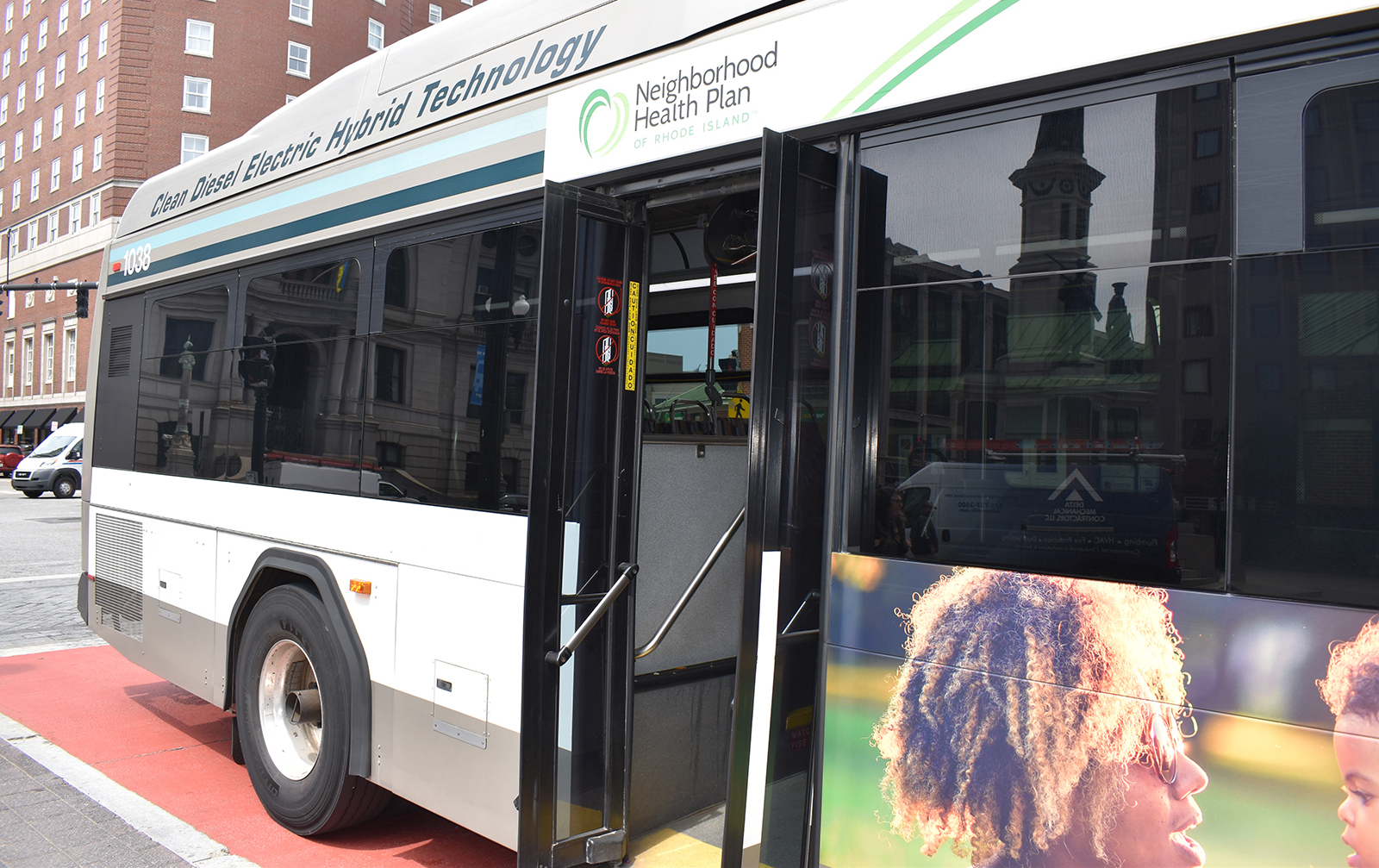
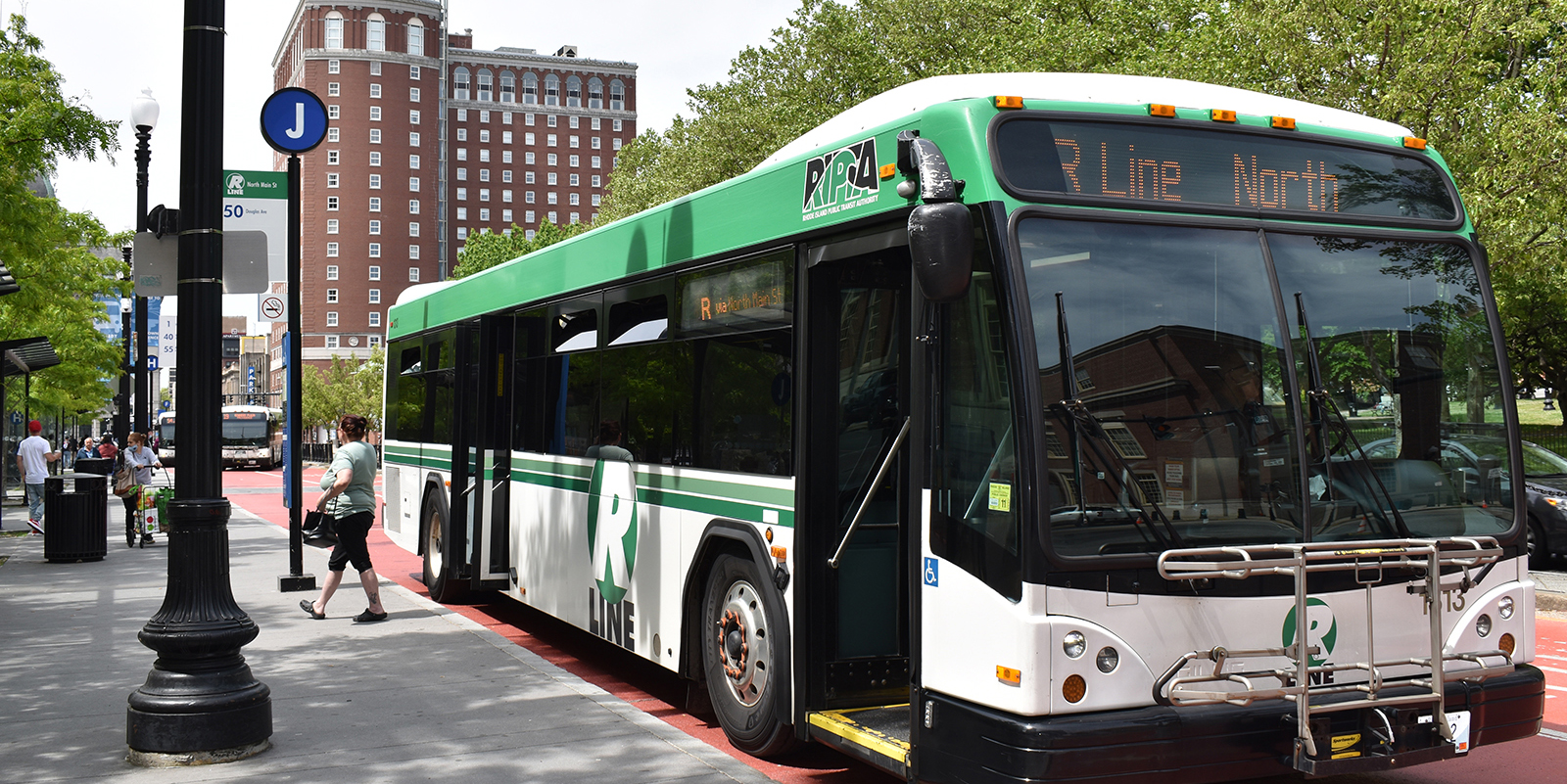
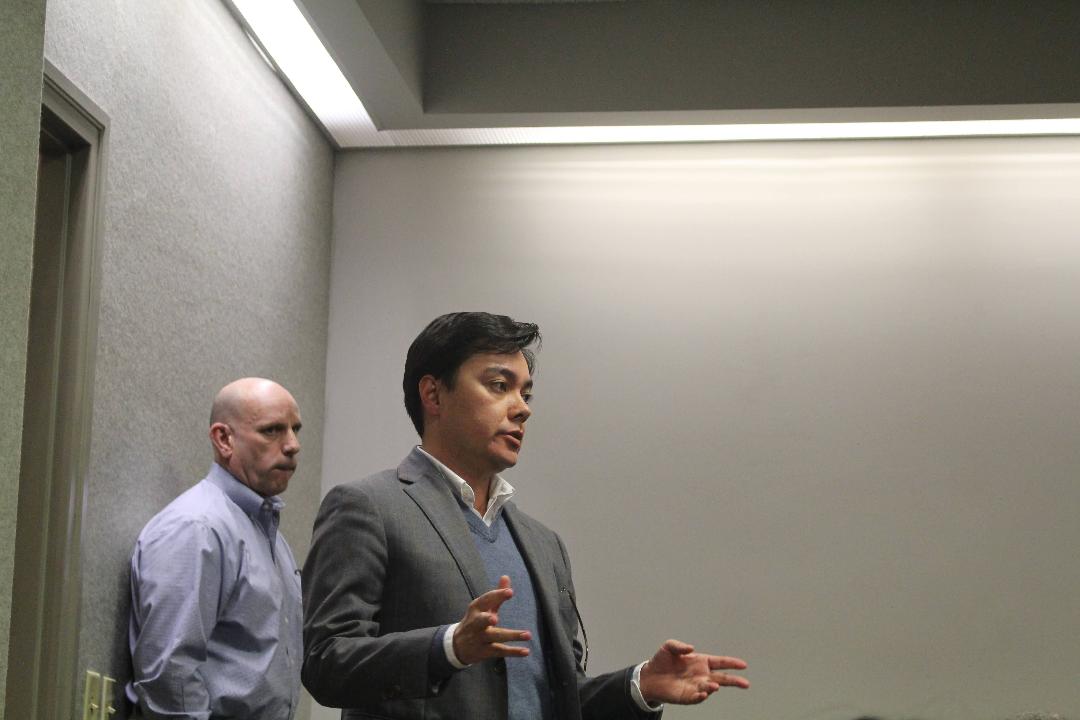
I wish Newport would repair sidewalks as needed vs letting them get so bad that it is a monumental repair project. Walking along Memorial Blvd., First Beach – the wall is crumbling too, and that is dangerous. The walk along King Park – that is very dangerous – it’s in terrible condition. As stated in the story, tree roots make it difficult for people with walkers, people with walkers certainly could not enjoy a walk around King Park. There are gaps/holes in a lot of the sidewalks – Newport needs to keep up with repairs.
It’s also pretty amazing how many stores and other businesses in downtown Newport are difficult to get into because they have a step up. Can’t get a wheelchair or scooter over that.
not just Newport, other towns have similar problems. Unfortunately RIDOT has prioritized massive expensive highway capacity expansions (on I-95, 295, 195, 146, 37, 6-10) so suburban residents can speed thru the city, though they are finally starting to take steps to improve sidewalks on some state roads. At least Newport has little snow, in North Providence and nearby towns, sidewalks on state roads are usually still snow covered long after storms, making conditions dangerous or uncomfortable for those who walk or use transit, including schoolkids. This needs to be addressed now before winter really sets in
I love Newport
but it is very difficult to get around
I have a disability and I am unable to enjoy the beautiful shops and restaurants